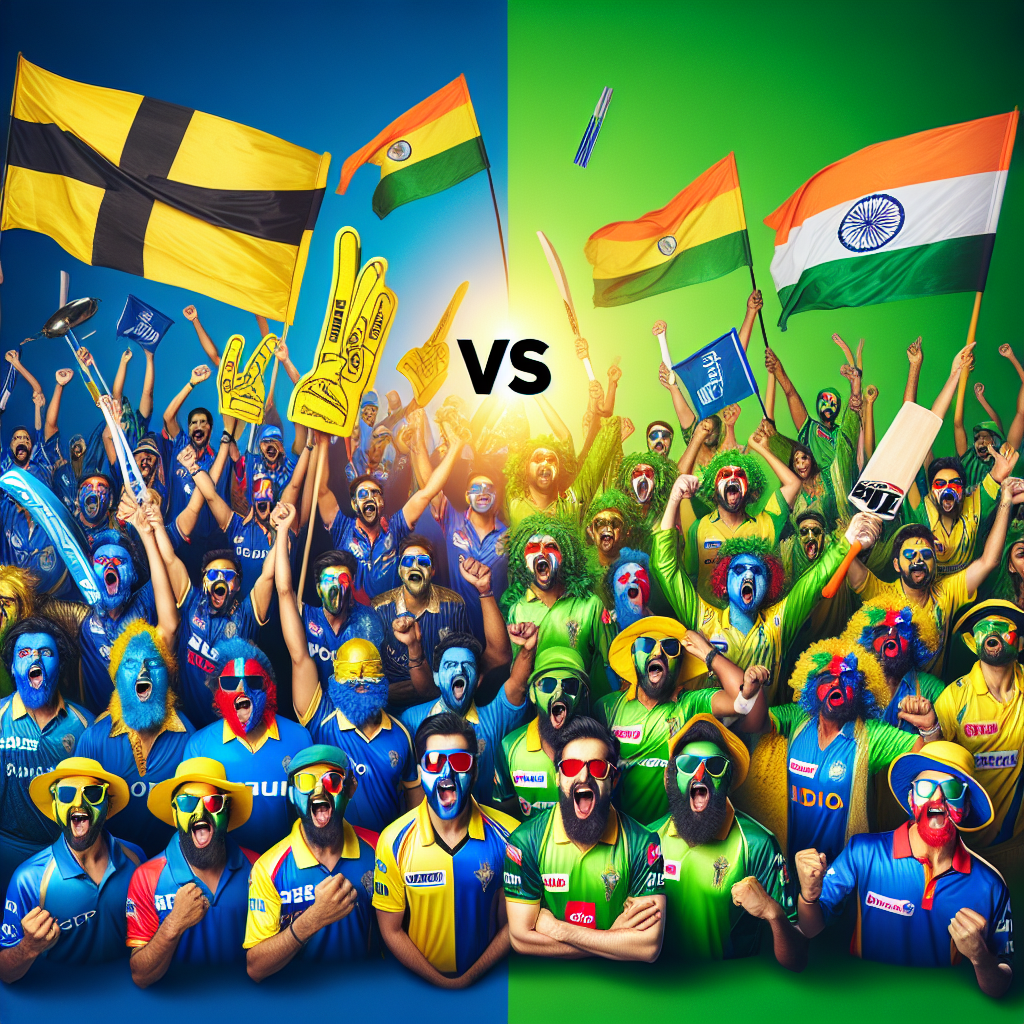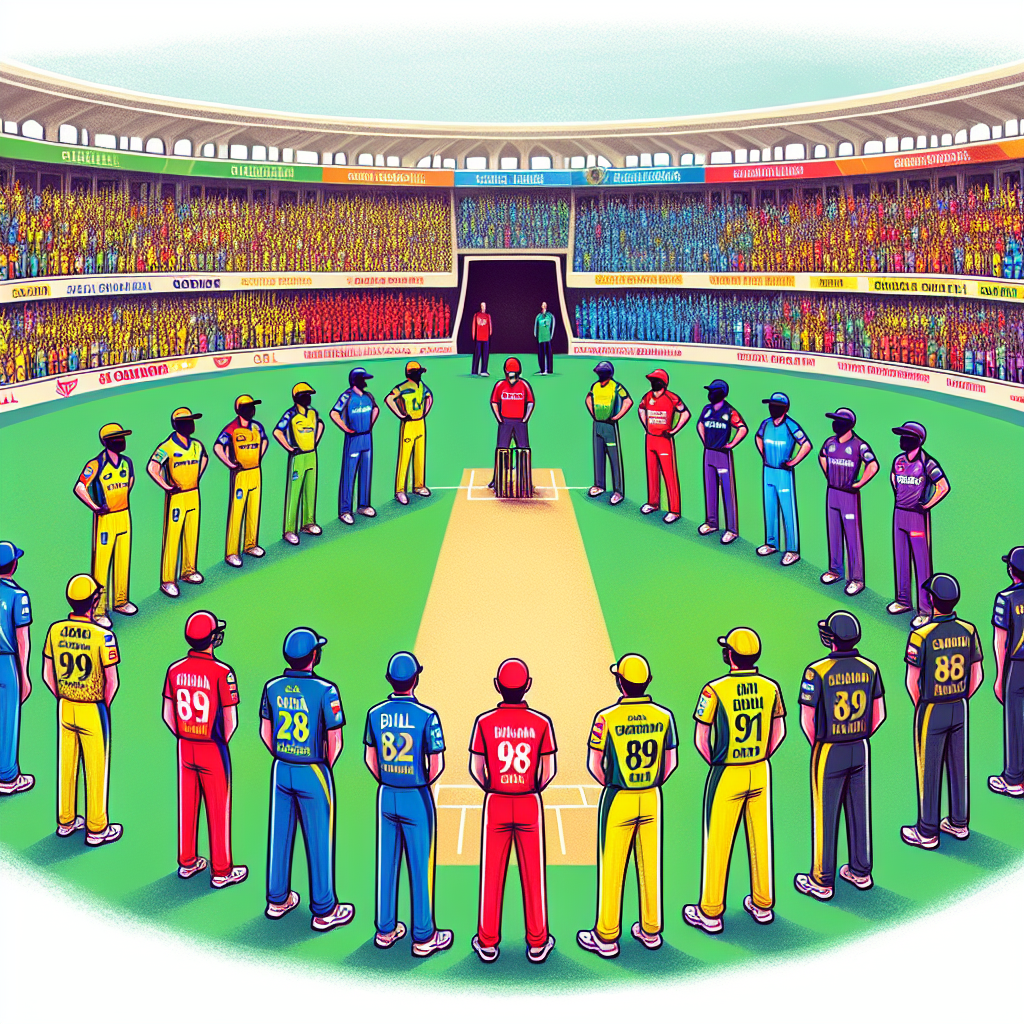
The Indian Premier League (IPL) is not just a cricket tournament; it is a festival that brings together cricket enthusiasts from around the world. Since its inception in 2008, the IPL has revolutionized the way cricket is played and perceived. One of the key aspects of the IPL is the formation of groups or teams, which are the backbone of the tournament. This article delves into the dynamics of these groups, their formation, and their impact on the IPL's success.
The Genesis of IPL Teams
The IPL was conceptualized by the Board of Control for Cricket in India (BCCI) as a franchise-based Twenty20 cricket league. The idea was to create a platform where international and domestic players could showcase their talent. The league started with eight teams representing different cities in India. These teams were formed through a bidding process, where business tycoons and Bollywood celebrities invested heavily to own a franchise.
Initial Team Formation
The initial teams in the IPL were:
- Mumbai Indians
- Chennai Super Kings
- Kolkata Knight Riders
- Royal Challengers Bangalore
- Delhi Daredevils (now Delhi Capitals)
- Rajasthan Royals
- Kings XI Punjab (now Punjab Kings)
- Deccan Chargers (now defunct)
Each team was allowed to have a squad of 18-25 players, with a mix of international and domestic players. The teams were formed through an auction process, where players were bid on by the franchise owners.
The Role of Auctions in Team Composition
The player auction is a crucial aspect of the IPL, as it determines the composition of each team. The auction is held annually, and teams have a set budget to spend on players. The auction process is dynamic and strategic, with teams looking to build a balanced squad that can perform well throughout the tournament.
Strategies in Player Auctions
Teams employ various strategies during the auction:
- Core Retention: Teams often retain a core group of players who have performed well in previous seasons. This helps maintain team stability and continuity.
- Young Talent: Franchises invest in young, emerging players who can be groomed for the future.
- Overseas Stars: International players bring experience and star power to the team, attracting fans and sponsors.
- All-Rounders: Players who can contribute with both bat and ball are highly valued for their versatility.
The auction is a spectacle in itself, with intense bidding wars and surprise picks. It sets the stage for the upcoming season and generates excitement among fans.
Team Dynamics and Performance
The success of an IPL team depends on various factors, including team dynamics, leadership, and performance on the field. Each team has its unique culture and style of play, influenced by the players and coaching staff.
Leadership and Captaincy
Leadership plays a crucial role in the success of an IPL team. Captains like MS Dhoni (Chennai Super Kings) and Rohit Sharma (Mumbai Indians) have led their teams to multiple titles with their astute leadership and calm demeanor. A good captain can inspire the team, make strategic decisions, and handle pressure situations effectively.
Team Chemistry
Team chemistry is another vital aspect. Players from different countries and cultures come together to form a cohesive unit. Successful teams foster a positive environment where players support each other and work towards a common goal.
Case Study: Mumbai Indians
Mumbai Indians (MI) is the most successful team in IPL history, with five titles to their name. Their success can be attributed to:
- Strong Leadership: Rohit Sharma's captaincy has been instrumental in MI's success.
- Balanced Squad: MI has a well-balanced team with a mix of experienced players and young talent.
- Consistent Core: The team has retained a core group of players over the years, ensuring stability.
- Effective Management: The franchise's management has made smart decisions in player auctions and team strategy.
The Impact of Fan Base and Brand Value
The IPL is not just about cricket; it's also about entertainment and brand value. Teams have built strong fan bases and brand identities, contributing to their success on and off the field.
Fan Engagement
Teams engage with their fans through social media, merchandise, and fan events. A loyal fan base provides unwavering support and creates a vibrant atmosphere during matches.
Brand Partnerships
Franchises have lucrative sponsorship deals with brands, enhancing their financial stability. The brand value of teams like Chennai Super Kings and Mumbai Indians is among the highest in the league.
The Evolution of IPL Teams
Over the years, the IPL has seen changes in team composition and structure. New teams have been introduced, and some have been disbanded. The league has expanded to include ten teams, with the addition of Gujarat Titans and Lucknow Super Giants in 2022.
Challenges and Opportunities
The expansion of the league presents both challenges and opportunities:
- Increased Competition: More teams mean more competition, making the league more exciting and unpredictable.
- Talent Pool: The inclusion of new teams provides opportunities for more players to participate in the IPL.
- Logistical Challenges: Managing a larger league requires efficient scheduling and logistics.
Conclusion
The IPL has transformed cricket into a global phenomenon, with teams playing a pivotal role in its success. The formation and dynamics of these groups are crucial to the league's appeal and competitiveness. From strategic player auctions to strong leadership and fan engagement, each aspect contributes to the overall experience of the IPL. As the league continues to evolve, the role of teams will remain central to its growth and popularity.
In summary, the IPL is a celebration of cricket, where diverse groups come together to create unforgettable moments. The teams are not just participants; they are the heart and soul of the tournament, driving its success and leaving a lasting impact on the world of cricket.





